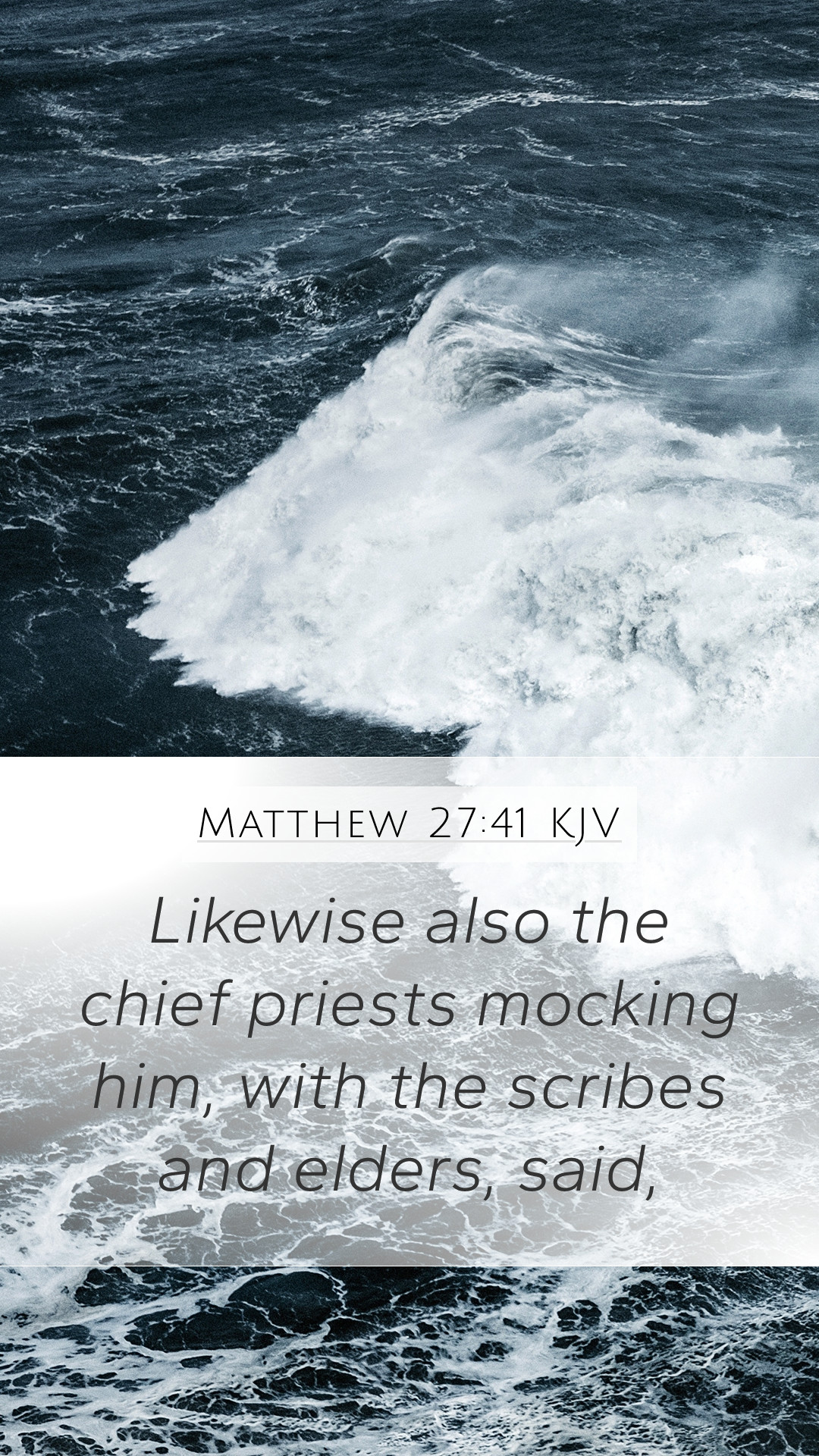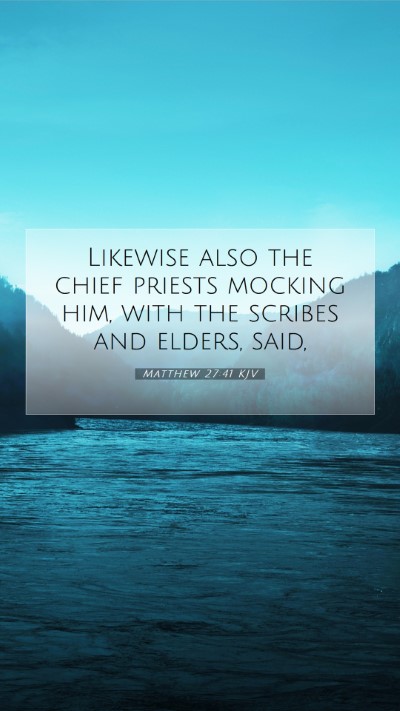Bible Verse Commentary on Matthew 27:41
Verse Reference: Matthew 27:41 - "Likewise also the chief priests mocking him, with the scribes and elders, said,"
Understanding the Context
This verse sits at the climax of the Crucifixion narrative, wherein Jesus faces mockery from the religious leaders of His time. To understand this verse fully, it's crucial to consider the backdrop of Jesus' passion, including His trials and the public humiliation He endured at the hands of both political and religious authority figures.
Insights from Public Domain Commentaries
Matthew Henry's Commentary
Matthew Henry notes that the mocking by the chief priests, scribes, and elders reflects the deep spiritual blindness and malice that characterized these leaders. They not only ridicule Jesus but also fail to see the profound truth of His identity as the Messiah. Their mockery illustrates a dramatic exposure of their hearts, consumed with jealousy and hatred.
Albert Barnes' Commentary
Albert Barnes emphasizes the significance of the leaders' mocking during such a crucial moment of suffering. He highlights that the act of these men, who seemed to hold religious authority, serves to demonstrate the rejection of Christ by those who should have recognized Him. Their challenge to Him to save Himself underscores their misunderstanding of His mission; they sought a physical savior rather than the spiritual deliverance He offered.
Adam Clarke's Commentary
Adam Clarke, looking at the theological implications, points out that the mockery is indicative of the fulfillment of Old Testament prophecies regarding the suffering servant. Clarke asserts that this passage allows readers to reflect on the nature of humanity's sinfulness and the depths of the need for redemption which only Jesus can provide. He also draws parallels between this incident and Psalm 22:7-8, where the Messiah is similarly mocked.
Significance of the Mocking
The ridicule faced by Jesus encapsulates the broader picture of rejection that accompanies the Messiah's mission. It serves as a poignant reminder of the cost of salvation through the lens of suffering. This moment not only fulfills prophecy but also signifies the battle between light and darkness that characterizes the Gospel narrative.
Application of Matthew 27:41
For those studying this verse, it prompts a reflection on the nature of faithfulness in the face of adversity. It challenges believers to consider how they might stand firm in their convictions when confronted with scorn or disbelief. This passage urges the audience to discern the truth of Jesus' love and sacrifice, despite societal pressures to dismiss or undermine His significance.
Cross References
- Psalm 22:7-8 - Prophetic depiction of the mockery faced by Christ.
- Isaiah 53:3 - Foretells the despising and rejection of the Messiah.
- Luke 23:35 - Similar mockery from others at the cross.
- John 19:19-24 - Details of the crucifixion and surrounding ridicule.
- Matthew 27:39 - Further mockery from the passersby.
- 1 Peter 2:23 - Encourages Christians facing mockery to respond with grace.
Conclusion
Matthew 27:41 serves as a poignant reminder of the depths of human sin and the rejection that Jesus faced, crucial for understanding His sacrifice. In Bible studies focused on the crucifixion narrative, this verse opens discussions on the nature of faith, perseverance, and the prophetic fulfillment found in Jesus Christ. As believers engage with such passages, they gain deeper insights into the character of God and the redemptive work accomplished through Christ.


